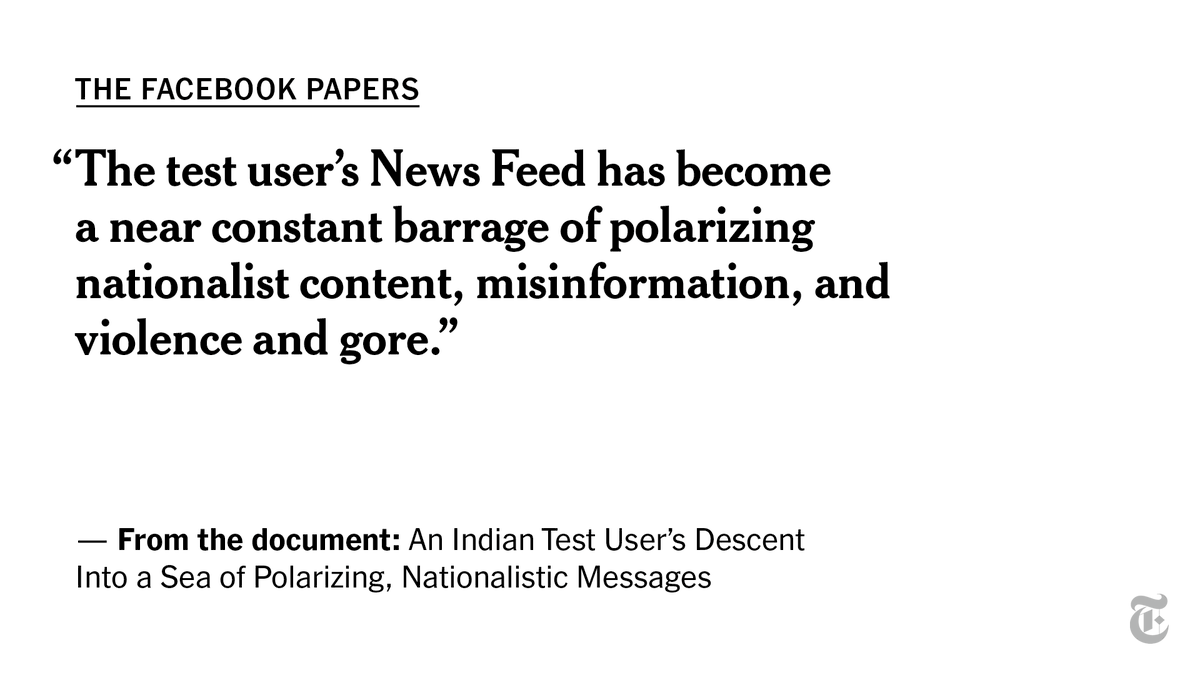
Facebook employees repeatedly flagged misinformation and inflammatory content about the U.S. election, though leadership has publicly placed the blame elsewhere. Documents obtained by The New York Times give new insight into what went on behind the scenes. nyti.ms/3pulJU0
Sixteen months before last November’s U.S. presidential election, a researcher at Facebook described an alarming development. She was getting content about the conspiracy theory group QAnon within a week of opening an experimental account. nyti.ms/3pulJU0
On Nov. 2, the day before the election, another Facebook employee posted a message alerting colleagues that comments with “combustible election misinformation” were visible below many posts. nyti.ms/3pulJU0
And six days after the election, a Facebook data scientist wrote in a note to his co-workers that 10% of all U.S. views of political material — a startlingly high figure — were of posts that alleged the vote was fraudulent.
nyti.ms/3pulJU0
nyti.ms/3pulJU0
These documents, many of which are being reported for the first time, show the degree to which Facebook knew of extremist movements and groups on its site that were trying to polarize American voters before and after the election. Read more: nyti.ms/3pulJU0
• • •
Missing some Tweet in this thread? You can try to
force a refresh







